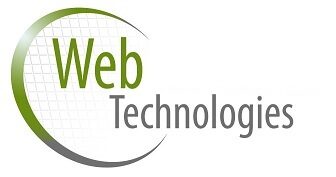Introduction
In the fast-paced world of hospitality, efficient management is crucial to providing exceptional guest experiences. Hotel management software, including Property Management Systems (PMS), has become a cornerstone for modern hoteliers. This explores the transformative impact of hotel management software and delves into the specific functionalities of PMS that are reshaping the industry.
The Evolution of Hotel Management Software
The hotel industry has come a long way from manual record-keeping to embracing cutting-edge technology. In the early days, hoteliers relied on ledger books and manual systems to manage bookings, check-ins, and other operational tasks. The advent of PMS hotel management software marked a paradigm shift, introducing automation and centralization of processes.
Centralized Booking Systems
One of the primary advantages of hotel management software is the ability to centralize booking processes. Integrating online reservation systems allows hotels to manage bookings from various channels seamlessly. This not only reduces the risk of overbooking but also enhances the overall efficiency of the reservation process.
Streamlined Front Desk Operations
Hotel management software streamlines front desk operations by automating check-ins, check-outs, and room assignments. This automation minimizes the chances of errors and allows staff to focus on providing personalized services to guests. Additionally, these systems often include features like key card integration, further enhancing the guest experience.
The Role of PMS in Hotel Operations
Property Management Systems (PMS) play a pivotal role in hotel operations, serving as a comprehensive platform that integrates various functions.
Reservation Management
PMS allows hoteliers to manage reservations efficiently. From tracking room availability to handling cancellations, PMS automates processes, reducing the risk of errors associated with manual management. It also provides a centralized platform for managing reservations across multiple distribution channels.
Guest Profile and Preferences
PMS stores guest profiles, enabling hotels to personalize services based on individual preferences. From room temperature settings to preferred amenities, this feature enhances the guest experience and fosters guest loyalty.
Integrated Billing and Invoicing
PMS simplifies financial transactions by integrating billing and invoicing processes. This includes automatic generation of invoices, tracking of expenses, and seamless integration with accounting systems. This not only reduces the workload on hotel staff but also ensures accuracy in financial transactions.
Enhancing Guest Experience
Hotel management software, particularly PMS, plays a crucial role in enhancing the overall guest experience.
Quick and Efficient Check-ins
With PMS, the check-in process becomes quick and hassle-free. Guests can complete the check-in formalities swiftly, and the system can automatically assign rooms based on preferences, ensuring a seamless arrival experience.
Real-time Communication
PMS facilitates real-time communication between different departments within a hotel. This ensures that the staff is well-coordinated, leading to quicker response times for guest requests or issues.
Personalized Services
By leveraging guest profiles and preferences stored in the PMS, hotels can provide personalized services. Whether it’s a welcome amenity in the room or a customized itinerary, these personalized touches go a long way in creating memorable experiences for guests.
Efficiency and Resource Optimization
Efficiency is a key advantage of hotel management software, contributing to resource optimization and cost savings.
Inventory Management
PMS provides real-time updates on room availability and inventory. This allows hotels to optimize pricing strategies based on demand, maximizing revenue. Additionally, it helps in efficiently managing housekeeping and maintenance schedules.
Reporting and Analytics
Hotel management software generates detailed reports and analytics, providing insights into various aspects of hotel operations. This data-driven approach enables informed decision-making, from marketing strategies to resource allocation.
Staff Productivity
Automation of routine tasks through hotel management software allows staff to focus on more complex and guest-centric activities. This not only improves staff productivity but also contributes to employee satisfaction.
Security and Data Protection
With the increasing reliance on technology, ensuring the security of guest data is paramount. Hotel management software, including PMS, incorporates robust security measures to protect sensitive information.
PCI Compliance
For hotels that process credit card transactions, PMS ensures compliance with Payment Card Industry Data Security Standard (PCI DSS) requirements. This is crucial for safeguarding guest payment information and maintaining trust.
Data Encryption
Hotel management software employs encryption techniques to secure data transmission and storage. This safeguards guest information from potential cyber threats, providing a secure environment for both guests and the hotel.
Future Trends and Innovations
As technology continues to evolve, so does hotel management software. Several trends and innovations are shaping the future of the hospitality industry.
Integration with IoT
The Internet of Things (IoT) is increasingly being integrated into hotel management software. Smart room controls, automated lighting, and IoT-enabled devices contribute to a more connected and convenient guest experience.
Artificial Intelligence and Machine Learning
AI and ML algorithms are being employed to analyze guest behavior, predict preferences, and optimize pricing strategies. These technologies enhance personalization and contribute to a more efficient and responsive hotel management system.
Contactless Technology
In response to the global pandemic, contactless technology has gained prominence. Mobile check-ins, digital room keys, and contactless payments are becoming standard features in hotel management software, providing a safer and more convenient experience for guests.
Seamless Integration with Third-Party Services
The flexibility of modern hotel management software extends to its ability to seamlessly integrate with a variety of third-party services. This includes partnerships with online travel agencies (OTAs), channel managers, and other hospitality technology solutions.
Channel Management
PMS often integrates with channel management systems, allowing hotels to update room availability, rates, and promotions across various online platforms simultaneously. This ensures that the hotel’s inventory is accurately represented, reducing the risk of overbooking and optimizing revenue potential.
Point of Sale (POS) Integration
For hotels with restaurants, bars, or other amenities, integrating the PMS with a Point of Sale system streamlines billing and inventory management. This integration ensures that charges incurred by guests at various outlets are seamlessly transferred to their overall bill, providing a unified and convenient payment experience.
Customer Relationship Management
Some advanced hotel management software includes built-in CRM functionality. This enables hotels to manage guest relationships effectively by tracking preferences, previous interactions, and feedback. A robust CRM system integrated into the PMS helps in creating targeted marketing campaigns, loyalty programs, and personalized communication to enhance guest engagement.
Conclusion
Hotel management software, with a particular focus on Property Management Systems, has revolutionized the way hotels operate. From enhancing guest experiences to optimizing internal processes, these systems have become indispensable for modern hoteliers. As technology continues to advance, the integration of innovative features ensures that hotel management software remains at the forefront of the hospitality industry, continually raising the bar for operational excellence and guest satisfaction.

